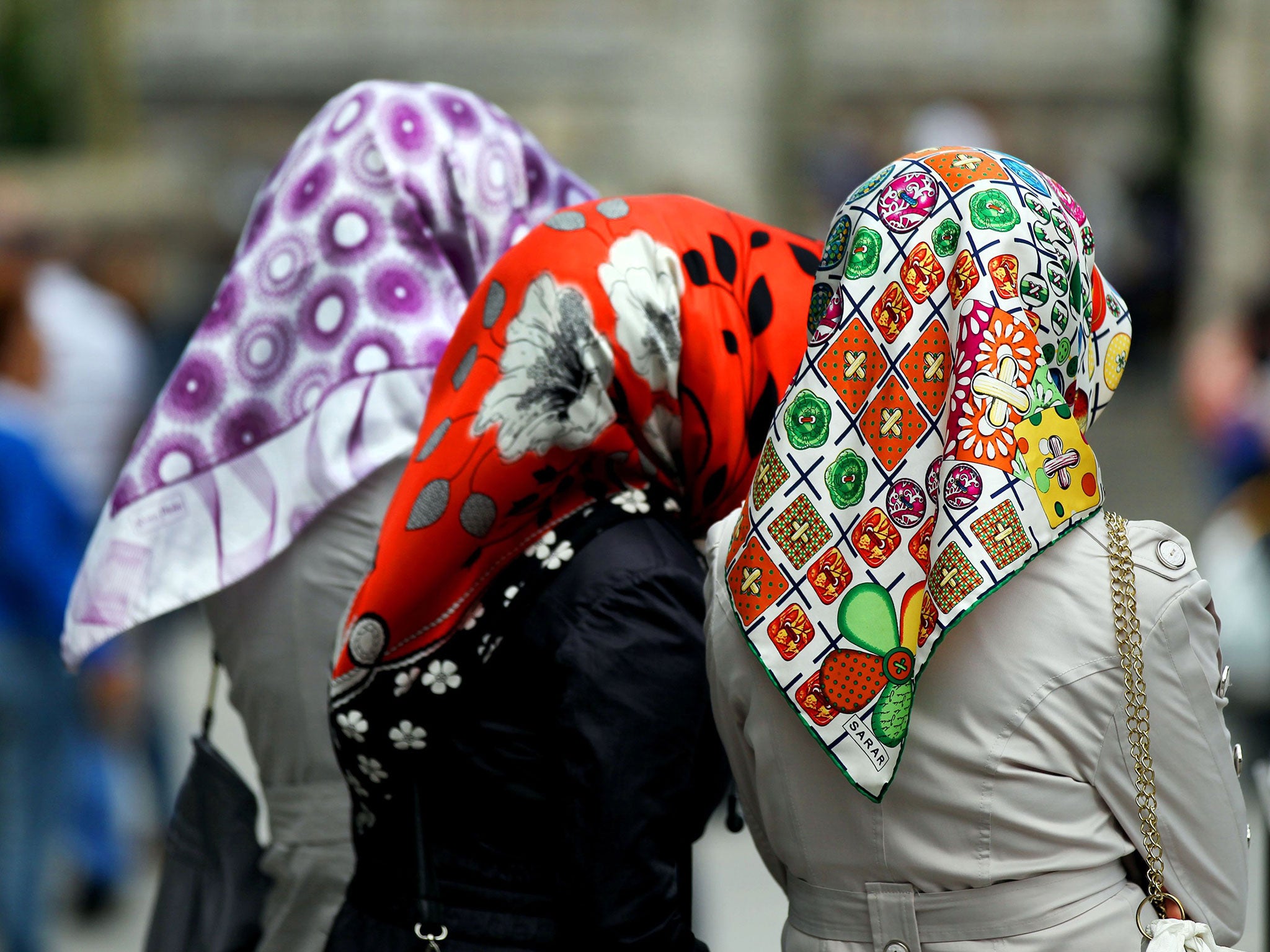German judges call for headscarf ban in court to show 'neutrality'
The groups said religious symbols could undermine confidence in the legal system

Your support helps us to tell the story
From reproductive rights to climate change to Big Tech, The Independent is on the ground when the story is developing. Whether it's investigating the financials of Elon Musk's pro-Trump PAC or producing our latest documentary, 'The A Word', which shines a light on the American women fighting for reproductive rights, we know how important it is to parse out the facts from the messaging.
At such a critical moment in US history, we need reporters on the ground. Your donation allows us to keep sending journalists to speak to both sides of the story.
The Independent is trusted by Americans across the entire political spectrum. And unlike many other quality news outlets, we choose not to lock Americans out of our reporting and analysis with paywalls. We believe quality journalism should be available to everyone, paid for by those who can afford it.
Your support makes all the difference.Two influential German legal associations are calling for headscarves to be banned for judges and lawyers to uphold “neutrality” in court.
Fierce discussion has been sparked by the case of a Muslim lawyer who was banned from wearing a hijab in the Bavarian town of Augsburg earlier this year.
But Aqilah Sandhu won the right to wear the garment after a court ruled that the prohibition was an attack on religious freedom and had no legal basis.

Now, two of Germany’s largest judges’ unions are calling for a formal ban on headscarves in the courtroom, as well as other religious symbols.
“The neutral clothing of judges should act as an outward signal to all participants in the legal process that the court will objectively and impartially rule on their dispute according to the law,” Sven Rebehn, director of the German Association of Judges, told the Rheinische Post.
“A law on dress codes must but not only be limited to the headscarf, but include other religious clothing or symbols.”
Robert Seegmüller, chairman of the Association of German Administrative Judges, said the required uniform of black robes, white shirt and white bow tie, cravat or neckerchief is important to show that the outcome of a case “does not depend on the person, but solely on what the law says”.
He argued that neutral clothing was particularly important in cases where litigants are non-Muslims, The Local reported.
A possible ban on headscarves for legal representatives in court is also supported by politicians including the ministers of justice for Baden-Württemberg and Mecklenburg-Western Pomerania, who are working on new state laws.
But there is tension between arguments for neutrality and possible violations of religious freedom.
The chairman of the Bundestag's committee on legal affairs, Renate Künast, said a headscarf ban would be a “serious encroachment on the freedom of religion”.
Clothing guidelines were issued by the Federal Ministry of Justice in 2008 but the German constitution does not ban citizens from wearing religious symbols.
Berlin has a “neutrality law” for public sector workers, including teachers, but when a Muslim trainee lawyer was told her position was being reviewed because of her hijab in 2013, an exception was made.
Join our commenting forum
Join thought-provoking conversations, follow other Independent readers and see their replies
Comments